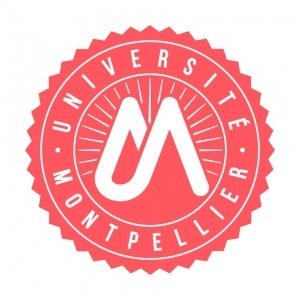Photos of university / #umontpellier
The Master’s Degree in Membrane Engineering at the University of Montpellier offers a comprehensive and specialized education designed to prepare students for advanced careers in the field of membrane technology. This program focuses on the fundamental principles, innovative developments, and practical applications of membrane processes across various industries such as water treatment, wastewater recycling, gas separation, food processing, and biomedicine. Through a multidisciplinary approach, students gain in-depth knowledge of membrane materials, design, fabrication, characterization, and performance analysis.
The curriculum combines theoretical coursework with hands-on laboratory training, enabling students to develop the technical skills necessary to innovate and optimize membrane solutions. Courses cover topics including membrane physics and chemistry, process engineering, membrane module design, fouling and cleaning mechanisms, and membrane system optimization. Additionally, the program emphasizes sustainable practices, environmental impact assessments, and the latest technological advances in membrane research.
Students have the opportunity to participate in cutting-edge research projects under the supervision of experienced faculty members, fostering critical thinking and problem-solving abilities. The program also includes internships with industry partners, providing invaluable real-world experience and professional networking opportunities. Graduates will be equipped with a strong foundation in both the scientific and engineering aspects of membrane processes, preparing them for careers in R&D, manufacturing, consultancy, or pursuing doctoral studies.
The University of Montpellier's vibrant academic environment, state-of-the-art laboratories, and international collaborations create an ideal setting for students to thrive and contribute to advancements in membrane technology. Upon completing this program, graduates will be well-positioned to address global challenges related to water scarcity, pollution control, and sustainable resource management through innovative membrane solutions.
"Membrane Engineering at the University of Montpellier offers a comprehensive and multidisciplinary curriculum designed to equip students with advanced knowledge and practical skills in membrane technology. The program covers a wide range of topics, starting from the fundamental principles of membrane science, including material properties, physics, and chemistry, to the latest innovations in membrane design and application. Students will explore various types of membranes, such as polymeric, ceramic, and composite membranes, and learn about their fabrication, characterization, and optimization processes.
The curriculum emphasizes both theoretical understanding and hands-on experience through laboratory work, research projects, and internships. Students will gain proficiency in membrane manufacturing techniques, separation processes, and system integration for industrial applications such as water purification, wastewater treatment, gas separation, and food processing. The program also delves into emerging areas like membrane biotechnology, nanomaterials, and sustainability considerations, preparing graduates to meet current industry challenges.
Throughout the course, students will develop critical thinking and problem-solving skills, enabling them to innovate and improve membrane-based processes. Interaction with industry experts and participation in seminars, conferences, and collaborative projects ensure that students stay updated on cutting-edge research and technological advancements. The program aims to prepare graduates for careers in research and development, engineering, environmental consultancy, and academia, both nationally and internationally.
By the end of the program, students will possess a thorough understanding of membrane engineering principles, practical expertise in membrane operation and troubleshooting, and a readiness to contribute to sustainable solutions for global environmental and industrial challenges."
Program requirements for the Master’s in Membrane Engineering at the University of Montpellier include a strong academic background in engineering, chemistry, physics, or related disciplines. Applicants are typically expected to hold a bachelor’s degree or equivalent from a recognized university, with coursework demonstrating proficiency in materials science, chemical processes, and membrane technology. Prior laboratory experience and familiarity with membrane fabrication, characterization, and applications are advantageous. The program emphasizes interdisciplinary knowledge, so supplementary coursework in environmental engineering, process engineering, and nanotechnology can strengthen an application.
Proficiency in the English language is required; applicants may need to submit standardized test scores such as IELTS or TOEFL if not from an English-speaking country. A motivation letter outlining the applicant’s interest in membrane technology and career objectives is also necessary, alongside academic transcripts and letters of recommendation from previous instructors or employers who can attest to the candidate’s technical skills and motivation.
The program favors applicants with a demonstrated interest in research and innovation, as the curriculum includes substantial project work, laboratory practices, and thesis research in membrane development and application areas such as water treatment, gas separation, or biomedical applications. To facilitate admission, candidates should provide a detailed CV and, where applicable, a portfolio of relevant research or project work.
Additional criteria may include a minimum grade point average (GPA) threshold and relevant extracurricular activities or internships related to membrane technology or chemical engineering. Selected candidates are expected to participate in interviews or assessments that evaluate their technical knowledge, problem-solving skills, and motivation for pursuing advanced studies in membrane engineering. Successful applicants will be prepared to undertake coursework in membrane processes, material science, and industrial applications, and to contribute to ongoing research projects at the university.
Financing studies for the Membrane Engineering program at the University of Montpellier are primarily supported through a combination of public funding, scholarships, student loans, and personal savings. The university benefits from the French national higher education funding system, which allocates resources to develop advanced scientific research and innovative programmes such as membrane engineering. Students from within France and the European Union can access government-funded grants and subsidies, which significantly reduce tuition costs and living expenses. Additionally, regional and local authorities sometimes offer scholarships aimed at promoting scientific research and engineering disciplines.
International students can apply for a variety of scholarships provided by the French government, the university itself, and partner organizations. These scholarships aim to facilitate international mobility and support students financially throughout their studies. The Campus France agency administers many of these programs, which include merit-based awards, need-based grants, and awards targeted at specific countries or regions. Furthermore, students are encouraged to seek external funding sources such as private foundations, industry-sponsored scholarships, and European Union grants, including programs like Erasmus+ that promote mobility and collaborative research.
Tuition fees at the University of Montpellier for international students vary depending on the program level and residency status but tend to be relatively affordable compared to many other European universities. The university also offers financial aid solutions, including affordable student accommodation and part-time work opportunities on or near campus, enabling students to support themselves financially during their studies.
Students are advised to prepare a comprehensive financial plan considering tuition, insurance, living expenses, and potential research costs. Many students depend on a combination of personal funds, family support, and external funding to cover their educational costs effectively. It is recommended that prospective students contact the university's financial aid office well in advance of their enrollment to explore available scholarships and funding options, as well as to understand eligibility criteria and application deadlines. Overall, the financing of studies aims to be inclusive and accessible, encouraging talented students from diverse backgrounds to pursue advanced education in membrane engineering and contribute to innovation in water treatment, separation processes, and sustainable membrane technologies.
The Membrane Engineering program at the University of Montpellier is a specialized course designed to equip students with comprehensive knowledge and practical skills in the field of membrane technologies. This interdisciplinary program covers fundamental principles of membrane science, including material selection, membrane fabrication, and characterization techniques. Students gain insights into various applications of membrane engineering, such as water treatment, wastewater reuse, gas separation, food processing, and pharmaceutical industries. The curriculum integrates theoretical coursework with laboratory work and projects, fostering hands-on experience in designing, testing, and optimizing membrane systems. The program emphasizes innovation and sustainability, preparing graduates to contribute to the development of eco-friendly separation processes and advanced filtration technologies. Students are also introduced to the latest trends and challenges in membrane technology, including the development of new membrane materials, fouling mitigation strategies, and energy-efficient processes. The program benefits from the university’s strong research environment, collaborations with industry partners, and access to state-of-the-art laboratories. Graduates of this program are well-equipped to pursue careers in research institutions, industrial R&D departments, and environmental consultancy firms or to undertake further doctoral studies in membrane science and engineering. The program’s multidisciplinary approach and emphasis on real-world applications aim to foster critical thinking, innovation, and expert knowledge, positioning graduates at the forefront of membrane technology advancements.






